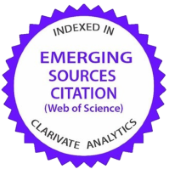Evaluation of Tourist Decision-Making Process by Eye-Tracking Method – Focused on Methodology Gap and Cross-National Comparison
DOI:
https://doi.org/10.29036/jots.v12i22.258Abstract
The dynamic development of information and communication technologies and online marketing in the hospitality and tourism industry changes customer behavior significantly.. This article presents the research results focused on measuring the visual attention of potential clients while choosing the hotel online. Eye-tracking-based data collection followed by appropriate statistical analyses was selected to study customers' behaviour and, consequently, judge the effectiveness and impact of used marketing tools. Three scenarios selected for this study covered different clients' segments: 1/overnight business guests (on the road), 2/weekend package guests (couples), and 3/team-building groups (small companies) and their specific needs. The behaviour of the respondents was monitored in two phases: browsing and deliberation phases. Our study reveals the specifics in Middle and East European consumers' behaviour in both phases, the differences in their priorities, their personal filters used, specifics of their decision-making process, etc., compared with Noone & Robson studies from 2014 and 2016 on US customers. From the methodological point of view, the study reveals the importance of so-called scenarios since it clearly shows that preferences during the browsing phase (e.g. photos of hotels, rooms, bathrooms, its environment, surrounding landscape, etc.) depend on the simulated life situation. The differences in both groups of clients' behaviour and especially in their decision-making process are discussed in the conclusions.
Downloads
Downloads
Published
Issue
Section
License
Copyright (c) 2021 Journal of Tourism and Services

This work is licensed under a Creative Commons Attribution-NonCommercial-NoDerivatives 4.0 International License.
Journal of Tourism and Services (ISSN 1804-5650) is published by the Center for International Scientific Research of VŠO and VŠPP in cooperation with the following partners:
- Juraj Dobrila University of Pula, Faculty of Economics and Tourism, Croatia
- School of Business and Administration of the Polytechnic Institute of Setúbal, Portugal
- Szent István University, Faculty of Economics and Social Sciences, Hungary
- Pan-European University, Faculty of Business, Prague, Czech Republic
- Pan-European University, Faculty of Entrepreneurship and Law, Prague, Czech Republic
- University of Debrecen Faculty of Economics and Business, Hungary
- University of Zilina, Faculty of Operation and Economics of Transport and Communications, Slovakia
The publisher provides a free access policy to the Journal of Tourism and Services.





